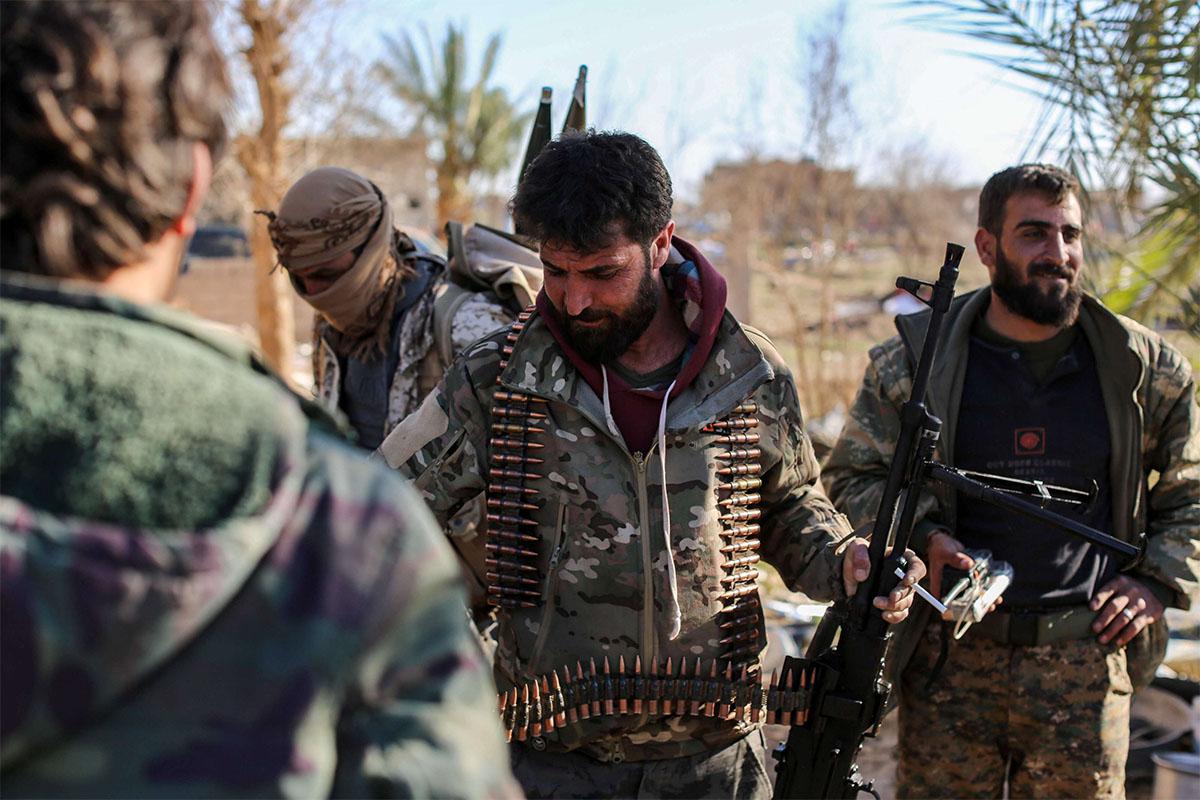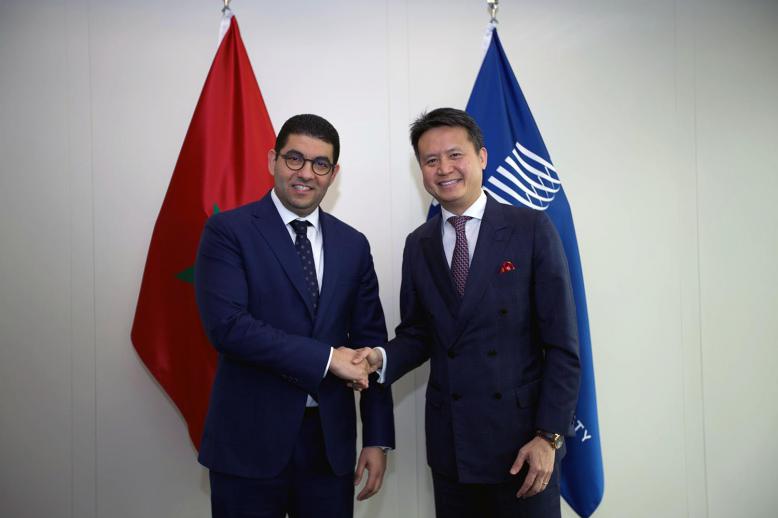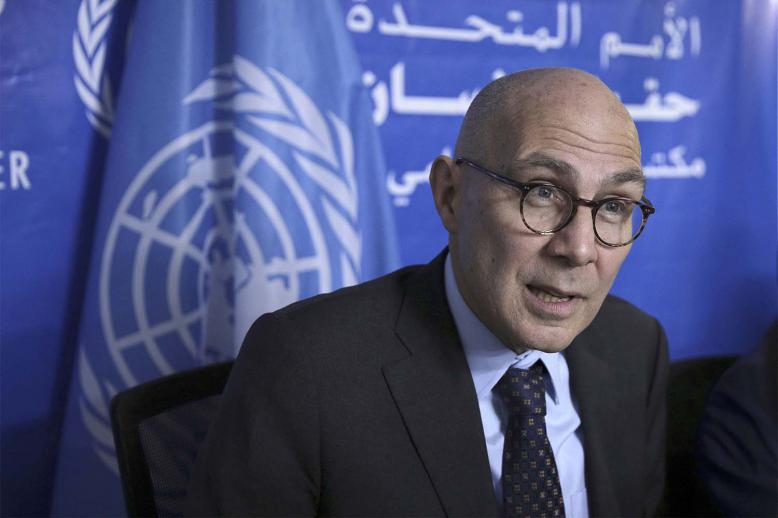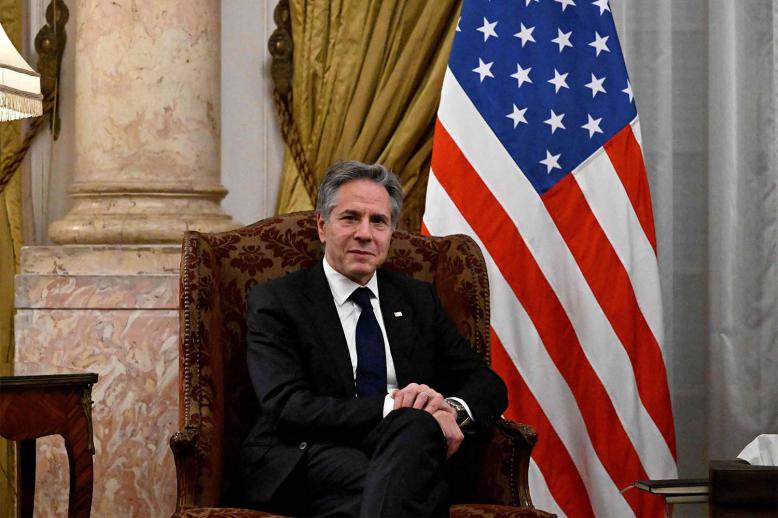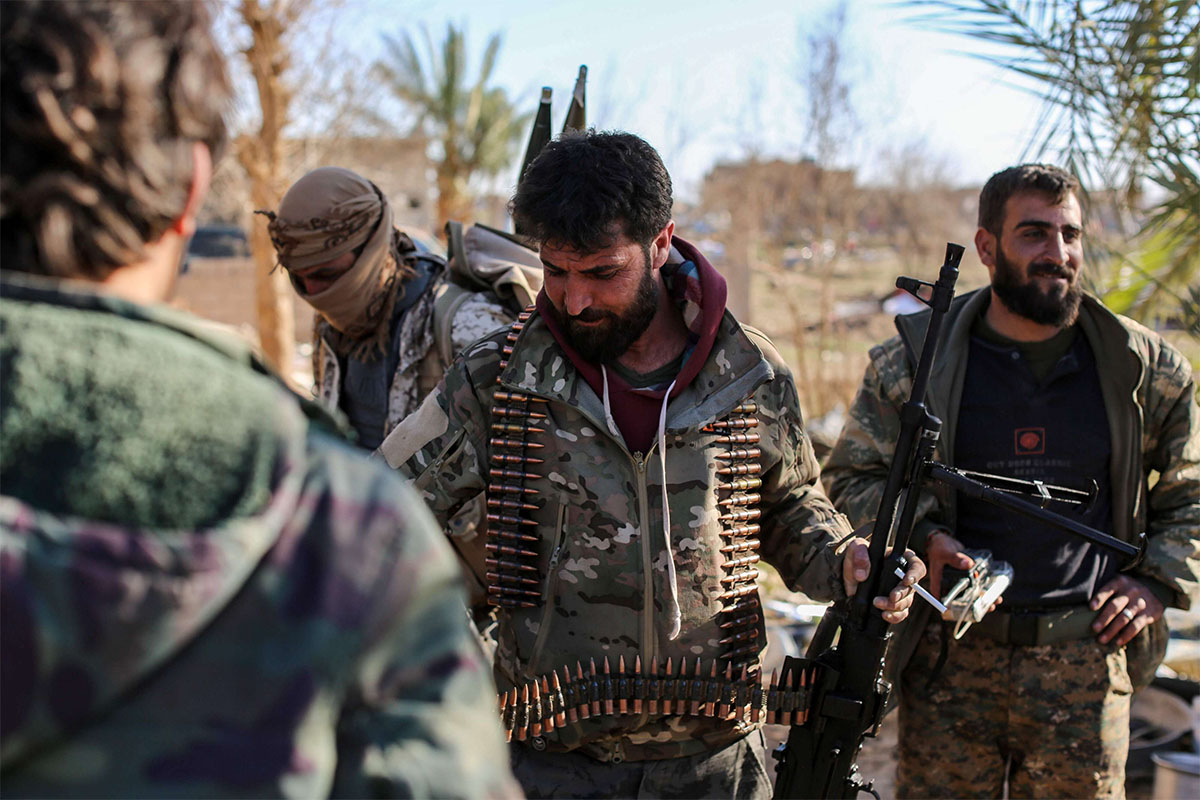Kurdish-led Syrian forces pound last IS stronghold
OMAR OIL FIELD - Kurdish-led forces on Monday pounded the last scrap of land held by the Islamic State group in eastern Syria after hundreds more people surrendered.
The jihadists once ruled over millions in a swathe of Syria and Iraq, but they have since lost all that territory except for a riverside slither of land near the Iraqi border.
The US-backed Syrian Democratic Forces paused its months-old offensive against the shrinking holdout multiple times for thousands of dust-covered women, children and men to flee, including suspected jihadists.
The Kurdish-led SDF late Sunday warned remaining IS fighters that time was up for any surrenders and they were going in.
Around 400 men, women and children, mostly jihadists and their relatives, have since handed themselves over to the SDF, field commander Ahmed Qasser said.
Fierce shelling resumed Monday evening for the second night in a row, interrupting a brief lull in fighting that had taken hold during the day.
Flames ravaging the makeshift encampment lit up the night sky.
The crackle and thud of gunfire and shelling filled the air as plumes of thick black smoke rose over the bombed-out village.
At an SDF position around two kilometres (1.2 miles) away from the front line, fighters stood with their backs against the wall, watching a deluge of fire raining down on the bombed-out IS bastion.
"Now it gets serious," said one SDF fighter smiling, after an air strike pummelled the IS holdout.
Heavy fighting
The SDF launched the renewed assault on Sunday after no civilians were observed to remain in the riverside encampment.
"The clashes were heavy" overnight, SDF unit commander Aras Orkeish said, with IS launching "suicide bombers" and "car bombs" at them.
"The operation slowed down after midnight," he said.
The warplanes of a US-led coalition and mortar fire overnight pounded weapons caches, and tank fire targeted IS positions, a spokesman said.
It was unclear how many people remained inside the pocket on the banks of the Euphrates, SDF spokesman Mustefa Bali said late Sunday.
"We expect there to be from 1,000 to 1,500 terrorists inside," he said.
"During the advance, if our forces notice the presence of civilians, our special units... will do the necessary to bring them away from the clashes or even work to evacuate them."
Since December, nearly 59,000 people have left the last IS redoubt, according to the Syrian Observatory for Human Rights, around a tenth of them suspected jihadist fighters.
The last IS fighters are clinging on to an area that includes a dismal camp of vehicles and cloth-covered trenches by the reedy banks of the Euphrates.
The SDF pushed into the IS encampment some 10 days ago, discovering spent ammunition, pots and pans lying between hastily dug trenches and berms.
Humanitarian crisis
At the height of its brutal rule, IS controlled a stretch of land in Syria and Iraq the size of Britain.
The total capture of the Baghouz camp by the SDF would mark the end of the cross-border "caliphate" it proclaimed in 2014.
But beyond Baghouz, IS retains a presence in eastern Syria's vast Badia desert and sleeper cells in the northeast.
The jihadists have continued to claim deadly attacks in SDF-held territory in recent months, and the US military has warned of the need to maintain a "vigilant offensive".
The United States is expected to keep 200 "peace-keeping" troops in Syria after the end of the offensive, despite President Donald Trump's shock announcement in December that all 2,000 American soldiers would leave.
The exodus from Baghouz in recent months has sparked a humanitarian crisis, leaving aid organisations struggling to cope.
Those fleeing Baghouz have emerged exhausted and hungry after a prolonged siege.
Dozens of young children have died along the way or shortly after arriving at a Kurdish-run displacement camp in northeast Syria, according to the International Rescue Committee aid organisation.
Syria's Kurds hold hundreds of foreigners accused of fighting for IS as well as members of their families.
But their home countries have mostly been reluctant to take them back, with Britain stripping several women of their nationalities.
Morocco said it had repatriated from Syria on Sunday eight of its nationals suspected of belonging to IS.
The United Nations' Children Fund said the fate of foreign children fleeing IS territory should not be ignored.
"The message that these children are not wanted is growing stronger and stronger," said Geert Cappelaere, UNICEF's Middle East director.
"There is a solution for these children. It requires political courage, political commitment. These children are children, they are not terrorists," he said.

